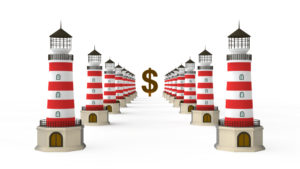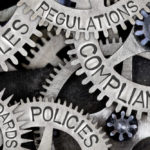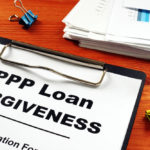The Paycheck Protection Program Meets Unintentional Humor

On April 23, 2020, the Small Business Administration (SBA) issued Paycheck Protection Program (PPP) guidance in the form of Frequently Asked Questions (FAQs). That guidance emphasized that, even with the uncertainties everyone is facing during the COVID-19 pandemic, PPP borrowers must certify in good faith that “‘[c]urrent economic uncertainty makes this loan request necessary to support the ongoing operations of the Applicant.’ . . . For example, it is unlikely that a public company with substantial market value and access to capital markets will be able to make the required certification in good faith. ” Any such company that takes a loan should be prepared to defend its certification. The warning caused significant angst for borrowers and commentators alike.
SBA has issued multiple supplements to its FAQs. On May 13, 2020, SBA issued FAQ No. 46, addressing how SBA will review borrowers’ good-faith certifications that their PPP loans were necessary. FAQ No. 46 states, in part,
SBA, in consultation with the Department of the Treasury, has determined that the following safe harbor will apply to SBA’s review of PPP loans with respect to this issue: Any borrower that, together with its affiliates,[] received PPP loans with an original principal amount of less than $2 million will be deemed to have made the required certification concerning the necessity of the loan request in good faith.
SBA explained that it created the safe harbor because
borrowers with loans below this threshold are generally less likely to have had access to adequate sources of liquidity in the current economic environment than borrowers that obtained larger loans. This safe harbor will also promote economic certainty as PPP borrowers with more limited resources endeavor to retain and rehire employees. In addition, given the large volume of PPP loans, this approach will enable SBA to conserve its finite audit resources and focus its reviews on larger loans, where the compliance effort may yield higher returns.
So PPP borrowers of less than $2 million now have a safe harbor protecting them from SBA review. I’m sure that the Department of Justice (DOJ) was pleased to learn about this. Just a week earlier, on May 5, 2020, DOJ announced its “First in the Nation” PPP loan fraud prosecution. The criminal complaint charges David A. Staveley, aka Kurt D. Sanborn, and David Butziger with “conspiring to seek forgivable loans guaranteed by the SBA, claiming to have dozens of employees earning wages at four different business entities when, in fact, there were no employees working for any of the businesses.” The total loan amount sought by the duo was . . . wait for it . . . just over $540,000.

Unintentional humor notwithstanding, SBA’s decision is understandable. Leaving aside the rationale that companies that borrowed more are less likely to need it, finite resources often cause government agencies to focus on the big money, allowing smaller frauds to slip through the cracks. Whistleblowers and their counsel have learned this lesson the hard way; SBA just came out and said it in the PPP context. Unless you’re Danny Ocean, it often makes sense for con men to follow the age-old adage, “Don’t get greedy.”
But what does this mean for legitimate businesses? If you borrowed more than $2 million, you are okay if you returned the loan by the deadline set forth in the FAQs (now May 18, 2020), or can demonstrate upon request that your loan was necessary to SBA’s satisfaction. Even if you cannot satisfy SBA, the agency will provide you notice of their determination and an opportunity to avoid more trouble.
If the borrower repays the loan after receiving notification from SBA, SBA will not pursue administrative enforcement or referrals to other agencies based on its determination with respect to the certification concerning necessity of the loan request. SBA’s determination concerning the certification regarding the necessity of the loan request will not affect SBA’s loan guarantee.
If you have less than $2 million in PPP funds, you are pretty happy, but not carefree. One open question is how the FAQs could affect DOJ and whistleblower efforts to use the False Claims Act (FCA) for civil enforcement of alleged PPP fraud. SBA maintains that “Borrowers and lenders may rely on the guidance provided . . . . The U.S. government will not challenge lender PPP actions that conform to this guidance,[] and to the PPP Interim Final Rules and any subsequent rulemaking in effect at the time.” Could the creation of the safe harbor provide protection to a legitimate company that (1) took a PPP loan of less than $2 million; (2) does not return the loan by May 18, 2020, based in part on the safe harbor; and (3) later faces a qui tam complaint alleging FCA and reverse FCA violations for taking the loan and then failing to return he unneeded funds? Borrowers with any questions in this regard should consult with their counsel.
(Updated 5/18/2020)
Photo By Tschub from Shutterstock





